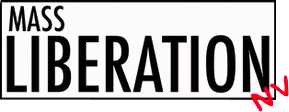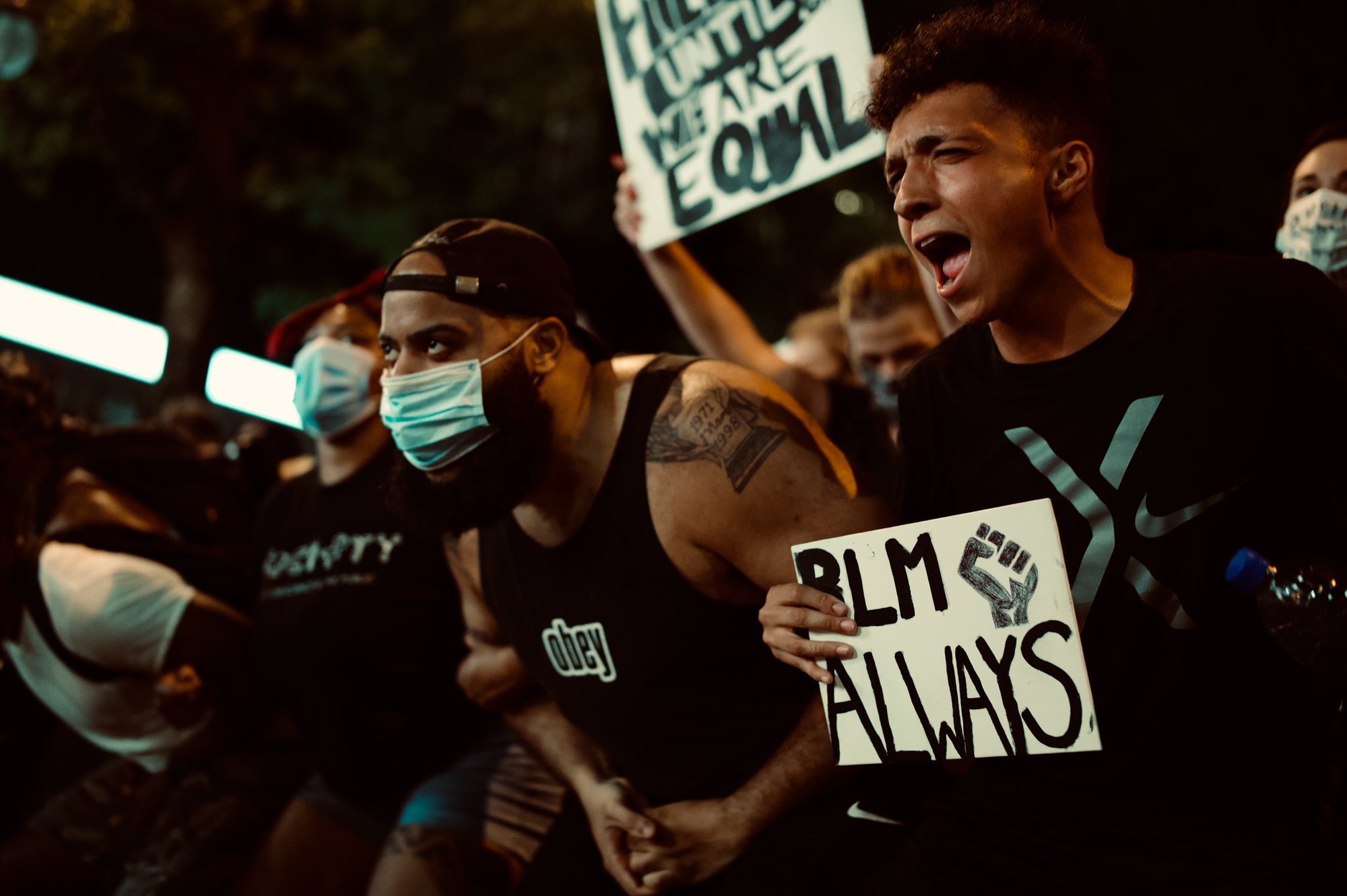Story by Martha E. Menendez
Originally published on The Nevada Independent
Las Vegas, NV – Remember back to last spring and summer? What is the first thing that comes to mind? For me, despite the still unfolding tragedy of the coronavirus taking over American city after city, the summer of 2020 will forever be remembered as the summer of uprising; the summer when people took to the streets to demand justice in numbers perhaps not seen since the Civil Rights movement of the 1960s. The spark that started the fire was, of course, the brutal and senseless murder of George Floyd.
On May 25th, a full two months into the ongoing global pandemic, while people continued to die and lose their livelihoods, Mr. Floyd was approached by police officers in Minneapolis on suspicion that he had purchased cigarettes with a counterfeit $20 bill. For this apparently unforgivable sin, George Floyd would be executed less 20 minutes later. The encounter was caught on video, the entire world invited to watch over and over and over again how yet another Black man was executed by those supposedly charged with protecting and serving him, protecting and serving all of us.
Many of us didn’t need additional proof of the antipathy and violent hostility with which America has always treated Black lives but maybe because of the brutality of that video, maybe because pandemic life had laid even more bare the inequities inherent in our way of life, or maybe because after Tamir Rice, and Michael Brown, and Elijah McClain, and Sandra Bland, and Atatiana Jefferson, and Daniel Prude, and Breonna Taylor and and and and…. people had just had enough of injustice and impunity. Only now, they also had time — time to take to the streets and scream all of their names, scream and demand and rage on their behalf, and on our own.
The streets in every major city in the United States became packed with people demanding justice, demanding accountability. There was shouting, there was fury and yes, there was also destruction of things, because one does not meet death and obliteration of life with tempered pleas and polite conversation. But as the first few days gave way to more strategic organizing, anyone paying attention could see clearly what the protests were always about. They were always about community, about protecting ourselves and our brothers and sisters. They were always about standing in solidarity and in love, peacefully and together. For many of us it was a time of hope that things might actually have to change. For others, it seems, it was a deafening call to protect the status quo at all costs.
Over the last few years, 46 states have at least considered anti-protesting bills, 26 have enacted some form of them, and 64 are currently pending. Among those pending is our very own bill here in Nevada. Introduced in the Legislature on February 23by seven Republican Assembly members and jointly sponsored by five Republican senators, Assembly Bill 168 seeks to increase criminal penalties for participation in “unlawful” protests, or in their words “riots.” This is a deliberate word choice. By and large, the protests in Nevada were peaceful. At least until the cops, in all their military Rambo gear showed up to push and intimidate and hurt those calling into question their authority. If anybody showed up to riot, it was those who showed up in riot gear.
But this bill does not address that, of course. What it does is it proposes to bump misdemeanors up to felonies, thus increasing the penalties and consequences associated with the types of charges that commonly result from situations involving civil unrest. Things like engaging in “unlawful assembly” could potentially lead to four years imprisonment. Unlawful assembly is defined as a gathering for the purpose of committing an unlawful act, even when that act is not actually committed. As an example, disturbing the peace is an unlawful act; and what is a protest, if not a disturbance of the peace? So, interpreted broadly, as the bill is written, a group of organizers gathering to discuss even the possibility of a constitutionally protected civil action could face jail time, or at the very least a serious and lasting disruption of their lives.
How’s that for equity and proportionality?
Also in the bill: providing any material support to justice-seeking menaces could also earn someone felony charges. But don’t worry, these brave legislators made sure to keep the definition of “material support” vague and open enough to make it stick no matter what kind of actual assistance or encouragement one provides: “any financial, logistical, informational or other support or assistance” (A.B. 168 Sec. 4.3, emphasis added). It’s those words “or other” that we attorneys love to fill in with our own self-serving imaginations.
I am not an organizer — I’m not even a particularly active protester — but what I have learned from the many I know and admire is that all of us who want in on this fight have a place in it. We all have a role to play, be it by driving folks to and from action locations, providing food or water, or raising our own voices and spreading the message wherever we can. All of this is effectively material support in furtherance of a cause — and, make no mistake, this bill seeks to make criminals out of each and every single one of us.
Of course, those in favor of the bill will claim that it is a necessary public safety measure. But can it really be about protecting the public when it also includes a provision to shield from civil liability any driver of a motor vehicle who seriously hurts or kills any person in the act of blocking a street or alleyway? This in the wake of dozens of incidents of people intentionally driving into pedestrians during last summer’s protests. So Nevada’s response is to protect… the drivers? Interesting. If I didn’t know any better, I’d think they were trying to distinguish between a public that needs protecting and a part of the public that the public needs protecting from. Us against them. A classic in the art of divisiveness.
In reality, this bill does nothing to address safety, at least not the public’s. It’s sole reason for being is to chill constitutionally protected speech and all forms of protest that endanger the status quo. And the status quo, let’s be clear, is racism and white supremacy. This is not an opinion. It is a demonstrable fact. The American Medical Association recognizes racism as a threat to public health, and our own Legislature has proclaimed systemic racism a public health crisis. “Structural racism,” it states, “has resulted in race as a social determinant of health, with persistent racial disparities in criminal justice, housing, education, health care, employment, worker protections, climate, food access, and technology…” So what does it say about us that just a few months after this recognition, members of that same Legislature are looking to establish more punishing laws, laws that will inevitably be applied disproportionately to communities of color, to Black communities in particular, and even more specifically, to Black communities who have the audacity to demand respect for their lives?
I’ll tell you what it says to me. It says that my hope last summer — the hope that we were seeing a new era of change, one that will not easily be silenced — was not misplaced. The racists are mad (they’re so mad!), and all they have left is to try to scare people into compliance. That’s it, that’s all they’ve got. But we got us, so we got everything.
Tangential moral of the story: pay attention and vote in local and state elections, and participate in the legislative process. We have the power, but only if we use it.
Martha E. Menendez, Esq. is the Bernstein Senior Fellow at the UNLV Immigration Clinic.

